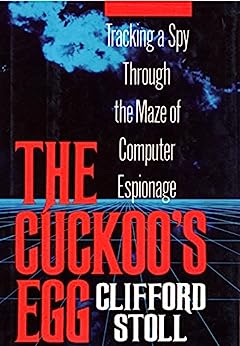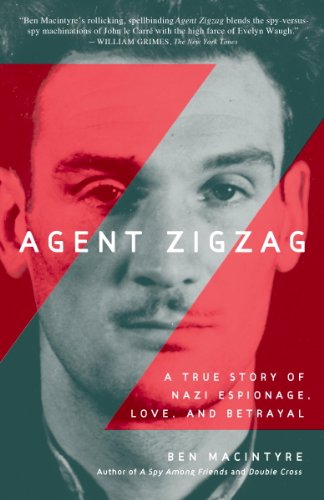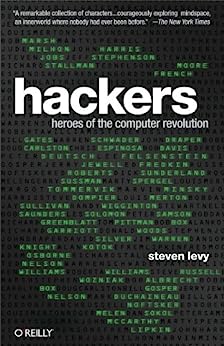PlexVector
Mellow Goose Brewing
"Loop Quantum Gravity" by Carlo Rovelli. Puts me to sleep in "no time".

So, recently I finished Brave New World. Generally I prefer to read paper books, but in this case I had electronic version for my iPad. I regret that I did not read this great book before, it was amazing. In fact, this book seemed terrible to me, because the described by the author can become reality. The people of this society are happy, but seem stupid.
Anyway, now I'm more interested in novels of Aldous Huxley.
 , but read your post then happened to glance at your avatar.
, but read your post then happened to glance at your avatar.
Anyway, now I'm more interested in novels of Aldous Huxley.

Tell us how it goes. Sometimes utopian lit ends up being just as dystopian as its antithetical cousin. And sometimes that's the point...Well, the next on the list is Island... Brave New World was his dystopian version; Island was his utopian version.
Tell us how it goes. Sometimes utopian lit ends up being just as dystopian as its antithetical cousin. And sometimes that's the point...
I am currently reading The Outsider, by Stephen King.

I'm about a third of the way through Wool now and am thinking that Hugh Howey must have been seriously traumatized by an IT guy at some point...I recently found a book by Hugh Howey called "Wool" that I devoured so quickly the I ended up buying the rest of the trilogy, "Shift" and "Dust"... Good stuff.
I'm about a third of the way through Wool now and am thinking that Hugh Howey must have been seriously traumatized by an IT guy at some point...


I'm halfway through The Cuckoo's Egg. Been meaning to read it for a long time. I was a little hackerish back in the days of modems and dialup bulletin boards, so it's a trip down memory lane. Lots of talk about those old mainframe OS's too. I'll be some others here will have flashbacks. It's been a quick, easy read so far.


I was reading Atlas Shrugged, but by the end of the book, I stopped having interest in any of the terrible, two dimensional characters enough to finish it. The last couple hundred pages was a slog and I was wondering what I was punishing myself for.
In defense of Ms. Rand's writing (not that she needs it), she was born and educated through college in Czarist and Bolshevik Russia. She came here in 1922, IIRC, not speaking a word of English. So it's no wonder her phrasing and word choices sometimes seem, well, odd.Oddly enough, I usually find the opposite with Atlas.
The characters are, of course, terrible two dimensional caricatures of political ideologies, and frankly I don't know why people speak highly of Ayn Rand as a novelist. The point of the books is the philosophy, NOT the writing talent. I mean, who devotes like 30 pages to a monologue? So yeah, the characters are not particularly interesting, but the story moves towards the end.
I mention my take to people who are considering the book, and I usually tell them something along the lines of "the first 600+ pages or so are pretty slow, and tough to get through; but the pace picks up a lot from there".
I could easily understand losing interest halfway through, but usually if you make it to the 3/4 point, the storyline/pace has improved enough to make people want to finish.
The caricatures got on my nerves. The philosophy was heavy-handed, lacking almost any nuance even from the beginning. You basically knew what the direction from the first few chapters, and the results well before the end (which admittedly may have been her intention, I really don't know).In defense of Ms. Rand's writing (not that she needs it), she was born and educated through college in Czarist and Bolshevik Russia. She came here in 1922, IIRC, not speaking a word of English. So it's no wonder her phrasing and word choices sometimes seem, well, odd.
I agree, she could have covered the same ground in half the time. But look at anything else written by a Russian. They do like to stretch things out.The caricatures got on my nerves. The philosophy was heavy-handed, lacking almost any nuance even from the beginning. You basically knew what the direction from the first few chapters, and the results well before the end (which admittedly may have been her intention, I really don't know).
In opposition to bwarbiany's thoughts, I enjoyed the early narrative much more than the latter parts after the plot is explained and certain locations are revealed. It was quick moving (at times) and fairly exciting, but that was of course before the philosophical sections. I'm not denigrating the book, or Ayn Rand. In fact to write something like this she had to be a brilliant person. It was just not for me. I think she could have told this story and fleshed out the philosophy in 600 pages. Twice that much was filler, and the pages upon pages of studious descriptions of the main characters' bodies and the incessant love triangles got tiresome.
Oddly enough, I usually find the opposite with Atlas.
The characters are, of course, terrible two dimensional caricatures of political ideologies, and frankly I don't know why people speak highly of Ayn Rand as a novelist. The point of the books is the philosophy, NOT the writing talent. I mean, who devotes like 30 pages to a monologue? So yeah, the characters are not particularly interesting, but the story moves towards the end.
I mention my take to people who are considering the book, and I usually tell them something along the lines of "the first 600+ pages or so are pretty slow, and tough to get through; but the pace picks up a lot from there".
I could easily understand losing interest halfway through, but usually if you make it to the 3/4 point, the storyline/pace has improved enough to make people want to finish.
Just a thought.... Have you considered Robert Heinlein's juvenile science fiction? Some of the science is dated, but the stories and characters stand up very well. They were written in the late forties to early sixties, and had to satisfy a very blue-nosed Scribner's children's editor. I can't imagine anything in them being offensive these days. As far as I know they are all still in print. I discovered Red Planet in my junior high school library about 1964. I've been an avid reader of most anything ever since.Thoughts on books/series for an 11 year old? He just completed the entire Harry Potter series, if you want to base his "reading level" on that for comparison...
We're debating letting him start the Hunger Games series, but I'm not sure if that's too advanced/violent. Reviews on "The Secret Series" are pretty good, but understanding the reading level it's targeted at gives a wide range of age ranges that liked the series, so I don't know what to think.
In defense of Ms. Rand's writing (not that she needs it), she was born and educated through college in Czarist and Bolshevik Russia. She came here in 1922, IIRC, not speaking a word of English. So it's no wonder her phrasing and word choices sometimes seem, well, odd.
To be completely honest, I only finished it because I wanted to be able to say, "I read Atlas Shrugged", so there it is.
If it's any help, I've read the Hunger Games and I wouldn't be worried about my 10 year old daughter reading them, it's pretty PG with a dash of PG-13 at a few moments.
Just a thought.... Have you considered Robert Heinlein's juvenile science fiction? Some of the science is dated, but the stories and characters stand up very well. They were written in the late forties to early sixties, and had to satisfy a very blue-nosed Scribner's children's editor. I can't imagine anything in them being offensive these days. As far as I know they are all still in print. I discovered Red Planet in my junior high school library about 1964. I've been an avid reader of most anything ever since.
I'm paraphrasing a book reviewer here: 'When I read The Fountainhead and Atlas Shrugged, I was sorry I never got to meet Ayn Rand. After reading her biography, I wanted to dig her up and drive a stake through her heart to make SURE!' She was an awful person, with some appalling behavior. That doesn't negate the value of some of her ideas. Others are quite demented. Each of us has to evaluate for ourselves. Which is kinda the key message of all of her books. Judge, and expect to be judged.I don't have a problem with her phrasing and word choices. I have a problem with her wooden, two-dimensional characters. As @shoengine says, they're more caricatures than anything else. The heroes are perfectly heroic, and the villains are perfectly villainous. From a literary perspective, it's utter rubbish. And I say that as a libertarian who often defends the book!
Oh, and her apparent rape fetish is a bit creepy.
Yeah, I was the same way with "War and Peace". I got about 2/3 of the way through it, and realized that I didn't care at all about any of the characters. I literally didn't care whether they lived or died, whether their pointless noble marriages worked or failed, etc. But I finished it, just to be able to say I had.
All I've read is The Moon Is A Harsh Mistress. What is a good one to pick up by him?Thanks. That is helpful.
That's a good thought... I am a huge Heinlein fan and I was asking myself at what point "Starship Troopers" might be appropriate, but figured it would take a number more years before he was able to appreciate the philosophy rather than just fighting bugs... I've never read his juvenile stuff though.
Enter your email address to join: